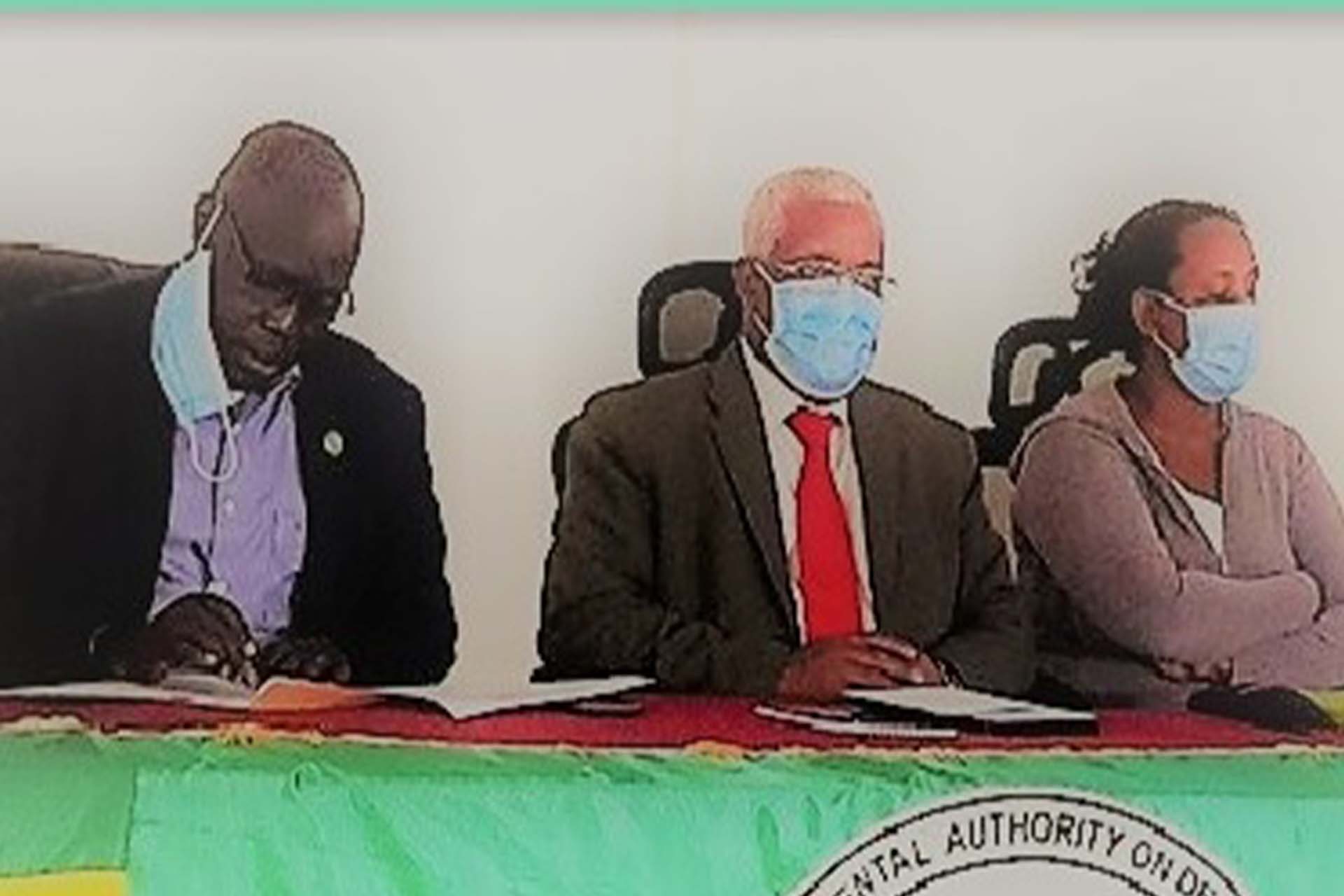16 August, 2021 (Gambella, Ethiopia): The Intergovernmental; Authority on Development (IGAD), kick-started today, 16 August 2021 a regional initiative to train teachers teaching refugee and host community children in secondary schools. The training is organized through the financial and technical support of the Government of the Germany through GIZ, and implemented by a Consultancy Firm called Particip.

The launching ceremony was officiated by H.E Omod Ojulu, President of the Gambella National Regional State of Ethiopia. More than 50 teachers and school administrators are selected to participate in the training from the Gambella region refugee settlement schools. The total number of teachers to be trained for Ethiopia is 100 and the remaining 50 will be from the refugee schools in Somali Regional State which will follow suit in the next few days, this is part of the 300 teachers in three Member States (Ethiopia, Sudan and Uganda).
In his opening address, the Mr. Ojulu commended IGAD for its efforts in ensuring quality of education by training teachers and encouraging them to motivate teachers. He also extended appreciations to GIZ for its commitment to build the capacity of teachers in refugee and host community settings. Other speakers on the occasion included Dr. Gatluak Ruon, Dean of Gambella Teacher Education and Health Sciences, Mr. Goaner Majock, Vice Buread Head of Gambella National Regional State Education Bureau, Ms Milena Adnyanata, GIZ Advisor, Dr. Kebede Kassa Tsegaye, IGAD Senior Education Program Coordinator. and Ms Aseged Meressa, Ag/Director, School Leaders Development at Ministry of Education of the Federal Democratic Republic of Ethiopia.

Figure 2: Trainee Teachers at the Opening Ceremony
The training will run until end of December 2021 and covers number modules which were developed after thorough needs assessment survey was conducted and analysed. They include pedagogy, Life-skills, psychosocial support, and ICT.
The IGAD regional teachers training initiative is in line with the Djibouti Declaration on education for refugees, returnees and host communities. It is also in response to the recent emphasis by the Executive Secretary to ‘take IGAD down to the people’ to address the felt and spelt needs of the population in the region.


